- News
- Reviews
- Bikes
- Accessories
- Accessories - misc
- Computer mounts
- Bags
- Bar ends
- Bike bags & cases
- Bottle cages
- Bottles
- Cameras
- Car racks
- Child seats
- Computers
- Glasses
- GPS units
- Helmets
- Lights - front
- Lights - rear
- Lights - sets
- Locks
- Mirrors
- Mudguards
- Racks
- Pumps & CO2 inflators
- Puncture kits
- Reflectives
- Smart watches
- Stands and racks
- Trailers
- Clothing
- Components
- Bar tape & grips
- Bottom brackets
- Brake & gear cables
- Brake & STI levers
- Brake pads & spares
- Brakes
- Cassettes & freewheels
- Chains
- Chainsets & chainrings
- Derailleurs - front
- Derailleurs - rear
- Forks
- Gear levers & shifters
- Groupsets
- Handlebars & extensions
- Headsets
- Hubs
- Inner tubes
- Pedals
- Quick releases & skewers
- Saddles
- Seatposts
- Stems
- Wheels
- Tyres
- Health, fitness and nutrition
- Tools and workshop
- Miscellaneous
- Buyers Guides
- Features
- Forum
- Recommends
- Podcast
review
£2,499.99
VERDICT:
Smooth, fast and fun to ride with clever cable routing, but could do with better wheels for racing
Weight:
8,700g
Contact:
At road.cc every product is thoroughly tested for as long as it takes to get a proper insight into how well it works. Our reviewers are experienced cyclists that we trust to be objective. While we strive to ensure that opinions expressed are backed up by facts, reviews are by their nature an informed opinion, not a definitive verdict. We don't intentionally try to break anything (except locks) but we do try to look for weak points in any design. The overall score is not just an average of the other scores: it reflects both a product's function and value – with value determined by how a product compares with items of similar spec, quality, and price.
What the road.cc scores meanGood scores are more common than bad, because fortunately good products are more common than bad.
- Exceptional
- Excellent
- Very Good
- Good
- Quite good
- Average
- Not so good
- Poor
- Bad
- Appalling
The Genesis Vapour 30 offers a fun ride that feels at home in a race and on a trail. The build isn't that flashy, but the package works well and continues to do so in the worst conditions. You'll be wanting a wheel upgrade for more serious racing, though.
- Pros: Clean frame design and looks brilliant
- Cons: The wheels are a compromise
The ride: Ideal for racing
Taking the Vapour 30 out for the first time, I noticed the quiet way that it goes about tackling technical and rugged terrain. Cruising down a rough footpath to start my ride, the bike felt incredibly smooth despite the 33mm Donnelly MXP clincher tyres being run high (for me) at 30psi.
> Find your nearest dealer here
That's a great feature as most of the local races take place on bumpy scrubland and it can be easy to get out of control on a rutted descent. A quiet ride is also a great sign of the internal build; a noisy ride is usually a sign of poorly routed cabling, so silence, in this instance, is definitely golden.
The geometry is great, with short 425mm chainstays, a long and sloping 551mm top tube and a 152mm head tube at a 72-degree angle for this Medium frame size. This creates a wheelbase of 1037mm – not the shortest, but still agile and quick through tight corners.
Get this into technical conditions and the bike is a joy to ride. The planted feel of the bike combined with a front end that is direct means that muddy corners are easy to navigate. On corners where I'd usually lose the front end, I was able to get around easily on the Genesis. That means less running which is great because firstly, I hate running, and secondly, riding is nearly always faster.
The handling really helps you to keep speed through corners, and getting back up to speed again much easier. This doesn't just help in races. Take this out onto the trails or the road and the bike transfers that same cornering confidence across surfaces. Compared with my road race bike, it doesn't feel sluggish on the tarmac; it feels light underneath you but floats better over rough surfaces thanks, mostly, to the fatter tyres.
The majority of my riding was on the muddy fields of the cyclo-cross race course. Here, the numerous short sprint efforts will highlight any dullness in the frame, but that bottom bracket handled everything that I could throw at it. This stiffness was especially noticeable during one particular race, which features a horrendous 30-second effort up a steep but dry bank. There was no way to tackle it other than going full gas. The Vapour never let me down, though my legs eventually gave way!
With cyclo-cross being so demanding on the body, it's nice to have such a compliant rear end. The thin seatstays soak up a load of abuse which is especially noticeable when the course is dry and bumpy. The front end isn't incredibly forgiving, but it's not uncomfortable either, though a carbon bar would help.
The Genesis is just slightly less forgiving than the Merida, though components are probably the cause of the difference. Both are light years ahead of my old Focus Mares, so it's easy to see just how much cyclo-cross bikes have progressed.
Cyclo-cross also hammers the gears. It makes sense to have a groupset that can shift under load and clear enough to keep working properly. SRAM's Rival 1x might not be the lightest in weight or shift feel, but it keeps working.
The braking is just brilliant. I found it easy to lock up the rear when I needed to, but also feather the brakes on muddy off-camber corners where traction is so precious. As a package, it's perfect for the privateer CX racer.
A 40T chainring and 32T lowest sprocket is as low as I'd want to go, and even during the fastest dry races I was never undergeared, barely touching the 11T sprocket.
Frame
The Vapour 30 sits at the top of Genesis' cyclo-cross range, with the 20 and 10 below it, which both feature cable actuated disc brakes. Genesis also offers the frameset separately for £1,499.99.
The frame has been constructed using a mix of 24 and 30T carbon fibre and this provides a smooth ride. It also appears to be pretty robust having survived a few good spills without issue.
There's one main port for both the front and rear derailleur housings along with the rear brake hose. It looks really clean when running a 1x setup. The front mech braze-on mount is well hidden with a detachable plate that leaves just two screws and a bung covering the front mech cable hole visible.
At the drive-side dropout, the derailleur hanger is neatly integrated inside the frame with the 12mm thru-axle hole. On the other side, the brake is a post mount. It's less clean but much easier to adjust if needed than flat mount. Beside the PF86 bottom bracket is a metal plate to protect the frame from dropped chains.
For me, the highlight of the frame is the clean way that Genesis has included routing for mechanical and electronic shifting in both 1x and 2x forms. This means that whichever option you go for, you'll end up with a smart-looking bike.
In heavy mud conditions the room around the wheels really helps to prevent any serious build-up. Compare this bike to my 2013 Focus Mares and the difference is huge. The wheels will keep spinning freely on the Genesis for a whole race whereas in muddy conditions I'd be swapping the Mares after just a few laps.
The PF86 bottom bracket is stiff and a great base for all of the accelerations out of corners. I've had no squeaks or clicks despite the poor conditions and extra washing that a bike like this sees. The headset, too, with a 1 1/8in top bearing and 1 1/2in lower bearing, has remained smooth while providing a solid platform for direct steering and short sprints.
The geometry of the Vapour is very similar to that of the Merida Mission CX 8000 – until we get to the head tube, which is quite a bit taller at 152mm. That said, the front end still feels low enough for full-on racing setups and I can see it being very welcome for many aching lower backs at the business end of a CX race.
While the overall 8.7kg weight might seem a little on the heavy side, it's not the fault of the frameset. Most of that weight is found in the basic wheels, and when those are removed the frame felt very similar to the Merida. I don't have an exact figure for the frame and fork weight of the Genesis, but I wouldn't be put off by the overall weight.
Build
The full build on test is the only one Genesis offers with the carbon frame. For your £2,499.99, you get SRAM's Rival 1x groupset and Genesis branded aluminium bar, stem and seatpost topped off by a Genesis Road Comfort saddle.
The bike comes with gearing that will suit pretty much any racing conditions: a 40T chainring paired with an 11-32T cassette. Personally, I find that any lower than that and it's faster to run, and I'm yet to spin out the 40x11 on anything other than a road descent.
Braking is excellent and one of the real highlights of the Rival groupset. The hydraulic callipers are really robust and allow excellent modulation of power to the 160mm rotors. While I still prefer the look of Shimano hoods, the SRAM Rival levers do offer fabulous grip when your hands are covered in mud.
Having used a non-clutch Shimano Di2 rear mech in a 1x setup, I'm still not convinced that the clutch is vital, but I'm also yet to have an issue with the Rival rear mech. It doesn't provide the feathery light shifting that the next-level-up SRAM Force offers, but it's still accurate when covered in muck.
The wheels are the big let down for me. Jalco rims are laced with 28 stainless spokes to Formula hubs and the package is heavy. These are annoying for a number of reasons, primarily that they rather spoil the bike's ability to jump out of corners. When you compare these to the Reynolds AR41 carbon wheels that you get on Canyon's Inflite CF SL 8.0 Race for just £200 more, the frameset option looks like much better value.
Thru-axles are 12mm front and back, with 100mm on the front and 142mm rear. All very standard. And while the axles themselves don't look overly fancy, they're easy to remove quickly when you're putting the bike back in the car. After the issues with some fancy designs, these are very welcome simplicity.
Donnelly isn't a brand of tyre I've used before but this 60tpi MXP provides decent traction and they were perfectly fine run at super-low pressures. They can be set up tubeless pretty easily, though you'll need to get some valves and sealant as they come supplied with inner tubes.
The Genesis X-Race Pro bar and Code 7 stem do their jobs very nicely and without fuss. The bar features a shallow drop with an 8-degree flare that makes the drops accessible for sprints and bumpy descents.
Value for money
The £2.5k mark is going to be around the top of many budgets, especially when the cyclo-cross season is only a few months long. That said, this is more than just a race bike. You can easily explore trails whenever you fancy. The wheels are a bit of a let down so I'd probably be looking at the frameset option at £1,499.99. I'm considering a new CX bike build for next season and the Vapour frameset is a strong contender. It's everything I need, with a clean design and a brilliant geometry that provides a fun ride.
> Buyer's Guide: 12 of the best cyclo-cross bikes
Compared with the full-build Genesis, the Vitus Energie CR appears to offer better value for money: £1,699.99 with the same Rival 1x groupset. The frame isn't as clean as the Vapour, but the money saving would allow for some extra race wheels.
> Cyclocross bikes vs gravel/adventure bikes: what's the difference?
The Canyon that I mentioned earlier, the Inflite CF 8.0 Race, is £2,699 (plus shipping) and you are getting a lot for your money. The seatpost is carbon, as is the integrated bar/stem, while the Reynolds wheels are a big upgrade. I'm still not sure about the top tube shape, though.
Conclusion
The Genesis Vapour 30 is a great bike to race and perfect for heading off-road for a trail ride. Elements of this build don't do the frameset justice, but I'm happy to see a really clean design that shows off the best of clever 1x cable routing. For £2,500 you do get a lot of bike, and if you've got the extra cash to spend on upgrading the wheels then the Vapour is a brilliant buy.
Verdict
Smooth, fast and fun to ride with clever cable routing, but could do with better wheels for racing
If you're thinking of buying this product using a cashback deal why not use the road.cc Top Cashback page and get some top cashback while helping to support your favourite independent cycling website
road.cc test report
Make and model: Genesis Vapour 30
Size tested: Medium
About the bike
List the components used to build up the bike.
SERIES: VAPOUR CX
COLOUR: YELLOW
FRAME: 30/40T MODULUS CARBON CX DISC
FORK: GENESIS CARBON CX
HEADSET: PRESTINE PT-1860A SEALED 1-1/8 ACB TOP, 1-1/2" SEALED
SHIFTERS: SRAM RIVAL 1X
REAR DERAILLEUR: SRAM RIVAL 1
CHAINSET: SRAM RIVAL 1X
BOTTOM BRACKET: SRAM
CASSETTE: SRAM NX
RIMS: JALCO
HUBS: FORMULA
SPOKES: STAINLESS STEEL 14G
TYRES: DONNELLY
BRAKES: SRAM RIVAL
BRAKE LEVERS: SRAM RIVAL 1X
HANDLEBAR: GENESIS X-RACE PRO / 8DEG FLARE / XS, 400MM / S-M, 420MM / L-XL, 440MM
GRIP TAPE: VELO TAPE W/GEL
STEM: GENESIS
SADDLE: GENESIS ROAD COMFORT
CHAIN: SRAM PC-1130
MAX TYRE SIZE: 700 X 35C
Tell us what the bike is for and who it's aimed at. What do the manufacturers say about it? How does that compare to your own feelings about the bike?
A cyclo-cross race bike that is designed, as I see it, for the privateer racer who also wants to take this on trails. I think Genesis has nailed it with the frame. The components are good but the wheels are a bit disappointing.
Genesis says, "RACE READY, LIGHT AND DURABLE. THE VAPOUR CARBON CX30 CHALLENGES THE STATUS QUO
"We've sweated the details and changed the way we look at CX geometry to create the flagship Vapour Carbon CX30. It's sporting a full Sram Rival 1x drivetrain, 12mm thru axles front and rear, and stopping duties handled by Rival hydraullic disc brakes. An Asymmetric Power Transfer BB (30% wider non drive side) and boxed chain stays all increase stiffness and power transfer for optimum performance when you need it."
Where does this model sit in the range? Tell us briefly about the cheaper options and the more expensive options
Top end, the only full build that Genesis offers with the carbon frame. You can buy the frameset for £1,499.99.
The aluminium frame/carbon fork Vapour 20 with SRAM Apex is £1,199.99, the Vapour 10 with Shimano Sora is £999.99.
Frame and fork
Overall rating for frame and fork
10/10
Tell us about the build quality and finish of the frame and fork?
If you quickly pop the headset bearings out, everything looks tidy inside with no rough carbon. The internal cable routing solution shows that Genesis has really thought about the finished look of the frame. It's perfect.
Tell us about the materials used in the frame and fork?
Full carbon with a mix of 30 and 40T. It doesn't say in which areas certain carbon has been used, but that's to be expected.
Tell us about the geometry of the frame and fork?
Very similar to the Merida I've just tested, until we come to the head tube. It's relatively tall, though I still felt able to get nice and low at the front.
How was the bike in terms of height and reach? How did it compare to other bikes of the same stated size?
Height and reach were absolutely fine and I was able to get a comfortable position easily.
Riding the bike
Was the bike comfortable to ride? Tell us how you felt about the ride quality.
The smoothness is mainly down to the lower tyre pressures, but come the end of a race and I didn't feel beaten up by this bike.
Did the bike feel stiff in the right places? Did any part of the bike feel too stiff or too flexible?
Out of corners, the frame and fork are brilliant. The wheels are a bit dull, but swap them out for something lighter and stiffer and the bike flies.
How did the bike transfer power? Did it feel efficient?
Yes, very. Stamp on the pedals up a steep bank and the bike will jump with you.
Was there any toe-clip overlap with the front wheel? If so was it a problem?
Nope. All good.
How would you describe the steering? Was it lively neutral or unresponsive? It's lively, but it doesn't scare you silly.
Tell us some more about the handling. How did the bike feel overall? Did it do particular things well or badly?
I rode this mostly on slick mud and the benefit of this bike is that you can aim for a rut and hit it. As the tyres aren't that grippy, that was very welcome.
Which components had the most effect (good or bad) on the bike's stiffness? would you recommend any changes?
The wheels need to go if you're racing. They really hold the bike back out of corners.
Which components had the most effect (good or bad) on the bike's efficiency? would you recommend any changes?
Again, those wheels mean you're pushing more watts than necessary to get the bike back up to speed.
Rate the bike for efficiency of power transfer:
9/10
I'm disregarding the wheels for this score, as they'd be the first thing to be changed.
Rate the bike for acceleration:
8/10
Again, out of the many corners on a CX course, this is very good.
Rate the bike for sprinting:
8/10
Composed over rougher ground so you can get the power down. Very good.
Rate the bike for high speed stability:
8/10
Rate the bike for cruising speed stability:
8/10
Rate the bike for low speed stability:
8/10
Rate the bike for flat cornering:
8/10
Rate the bike for cornering on descents:
8/10
Rate the bike for climbing:
9/10
Very good for the short efforts of cyclo-cross.
The drivetrain
Rate the drivetrain for performance:
9/10
Rate the drivetrain for durability:
8/10
Rate the drivetrain for weight:
7/10
Rate the drivetrain for value:
10/10
Wheels and tyres
Rate the wheels for performance:
3/10
Rate the wheels for durability:
8/10
Rate the wheels for weight:
3/10
Rate the wheels for comfort:
3/10
Rate the wheels for value:
5/10
Rate the tyres for performance:
6/10
Rate the tyres for durability:
8/10
Rate the tyres for weight:
7/10
Rate the tyres for comfort:
7/10
Rate the tyres for value:
7/10
Controls
Rate the controls for performance:
7/10
Rate the controls for durability:
9/10
Rate the controls for weight:
6/10
Rate the controls for comfort:
7/10
Rate the controls for value:
8/10
Tell us some more about the controls. Any particularly good or bad components? How would the controls work for larger or smaller riders?
It's all basic aluminium stuff and not particularly light, but at the same time it's not overly heavy and the handlebar, in particular, is perfectly stiff.
Anything else you want to say about the componentry? Comment on any other components (good or bad)
Everything works well while not being that flashy. That's fine for cyclo-cross where components regularly get trashed.
Your summary
Did you enjoy riding the bike? Yes
Would you consider buying the bike? I'd go for the frameset option.
Would you recommend the bike to a friend? Yes
How does the price compare to that of similar bikes in the market, including ones recently tested on road.cc?
You can get a bit more for your money by going with something from Canyon or Vitus, but for a frameset build this would be my pick. Dave really loved the Canyon Inflite, and Canyon has a few options either side of the £2,500 you're paying for the Vapour 30. The Inflite has better wheels, but the groupset is the same and you may well be limited by Canyon's bar/stem width options.
Rate the bike overall for performance:
8/10
Rate the bike overall for value:
7/10
Use this box to explain your overall score
Some of the finishing kit might be a bit basic but the important bit, the frame, is brilliant. It's fun to ride and great for chucking around a twisty and technical cyclo-cross course.
About the tester
Age: 24
I usually ride: Cannondale Supersix Di2 My best bike is:
I've been riding for: 5-10 years I ride: Most days I would class myself as: Expert
I regularly do the following types of riding: road racing, time trialling, cyclo-cross, commuting, club rides, general fitness riding, I specialise in the Cafe Ride!
Latest Comments
- Smoggysteve 0 sec ago
Sorry, I don't buy the argument about large cars. I drive an Audi Q5, a car I bought purely due to my partner having a disability. It's easy to...
- perce 14 min ago
Aw bless. My wife and I usually go to our local M&S cafe once a week for a bite to eat, usually Wednesday but sometimes Thursday. I usually...
- Exup 1 hour 29 min ago
At least some justice is being done........
- BIRMINGHAMisaDUMP 1 hour 39 min ago
I imagine the Police treat bike theft as an insurance issue rather than a criminal issue. Can't blame them to be honest. The best thing is to use...
- David9694 2 hours 6 min ago
Police launch investigation into destruction of barber shop in Hythe High Street...
- barbarus 10 hours 8 min ago
I live right in the centre of this. It's really heartening to read that there are people in favour....
- ktache 10 hours 36 min ago
I'd love for them to put a number on that "inappropriate speed"
- Nick T 11 hours 29 min ago
They need to use some harder material for the cleat retention clip really, that's worn out long before any bearing has had a chance to fail on...
- yiipeeia 14 hours 19 min ago
I am 67 and I cycle with two groups during the year The Haddenham Easyriders International who ride during the summer on Thursday evenings, and The...
- don simon fbpe 14 hours 30 min ago
Brexit is a wholly selfish act....
































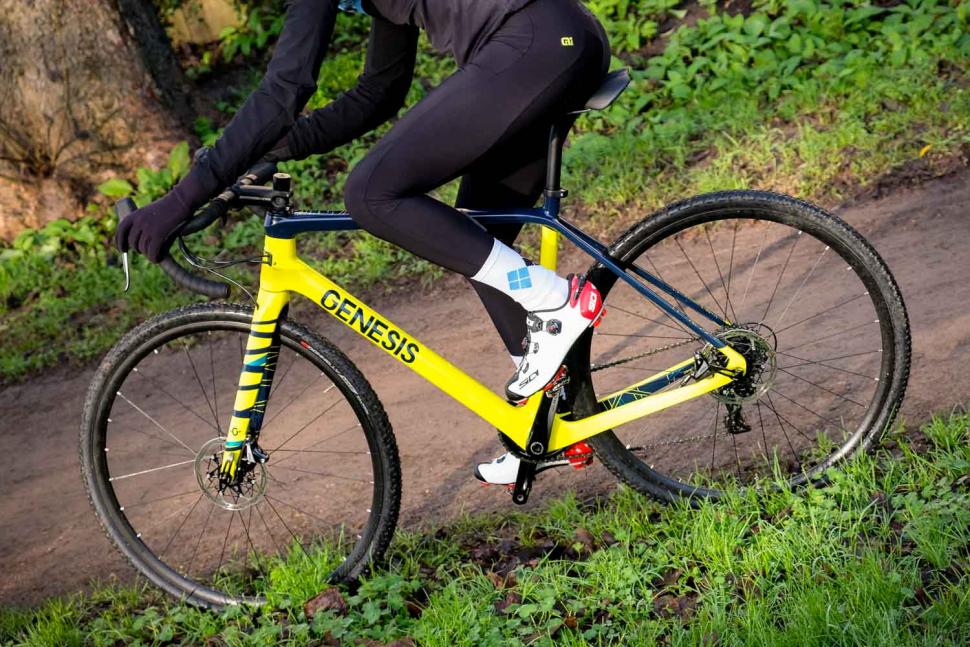
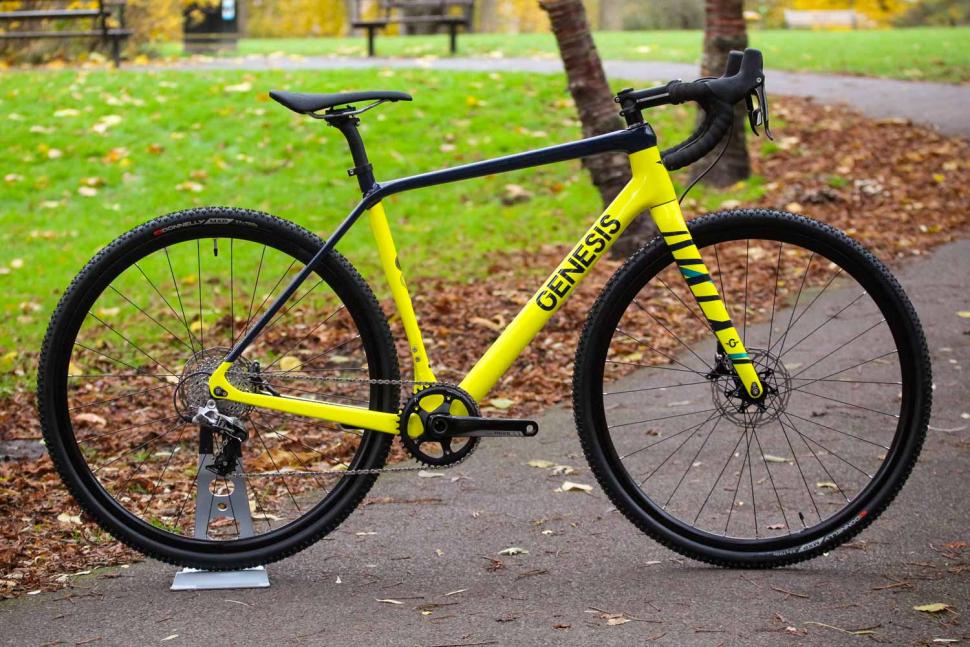

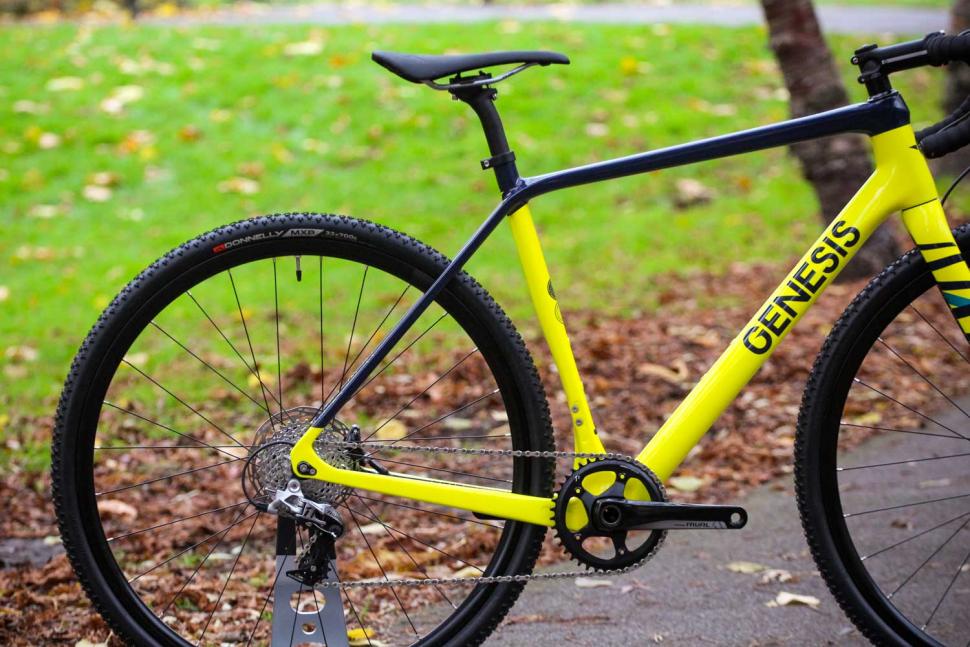

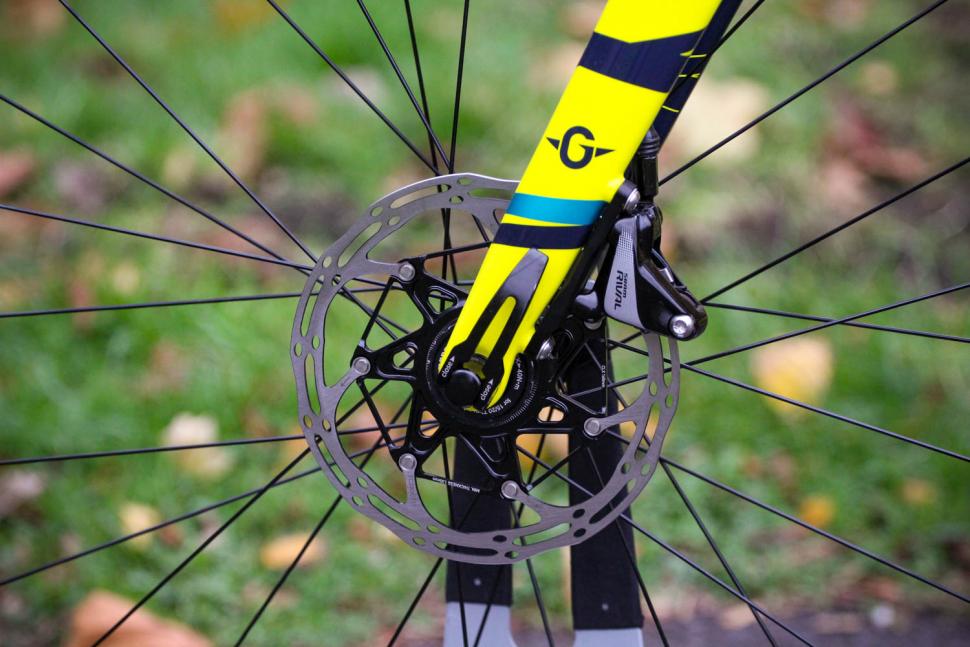

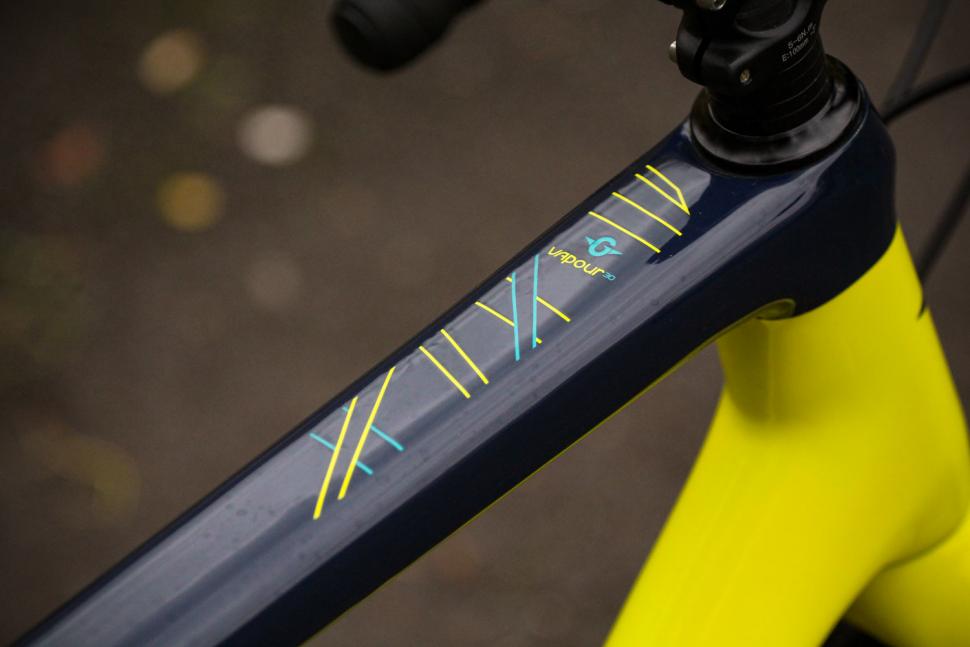

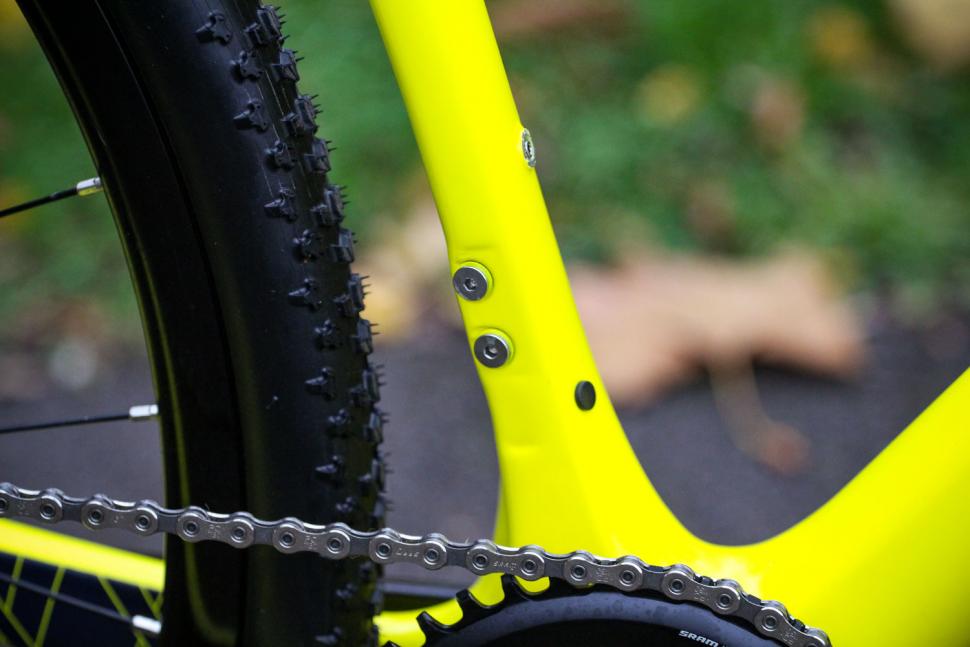
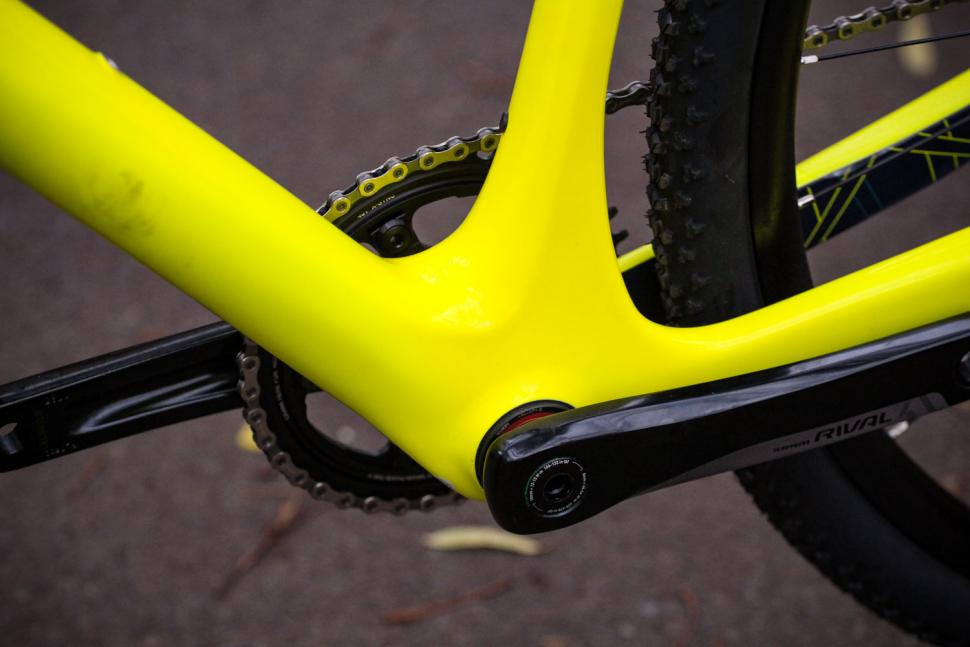
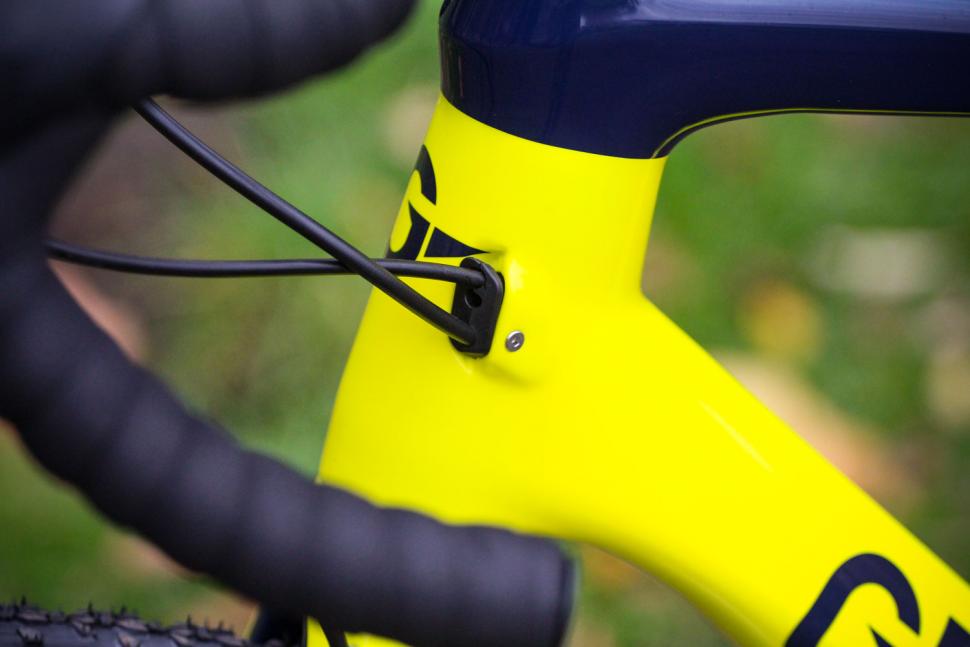

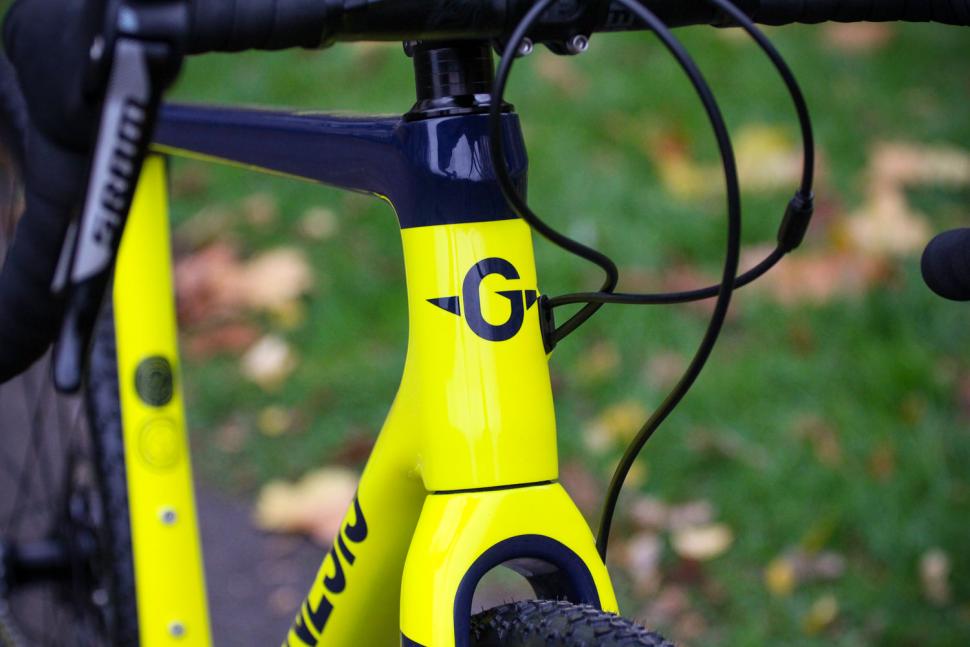

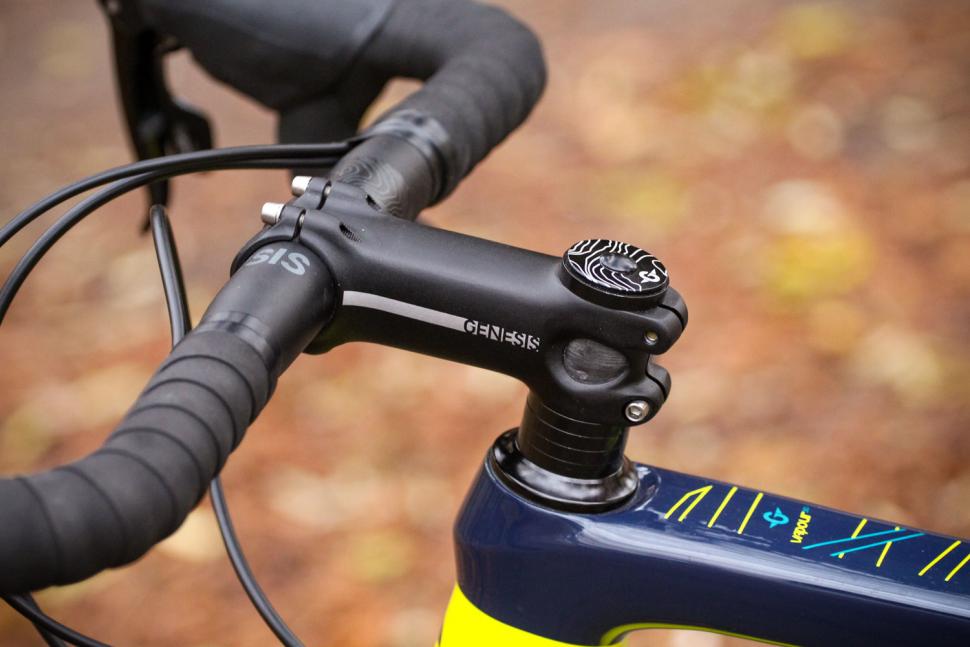
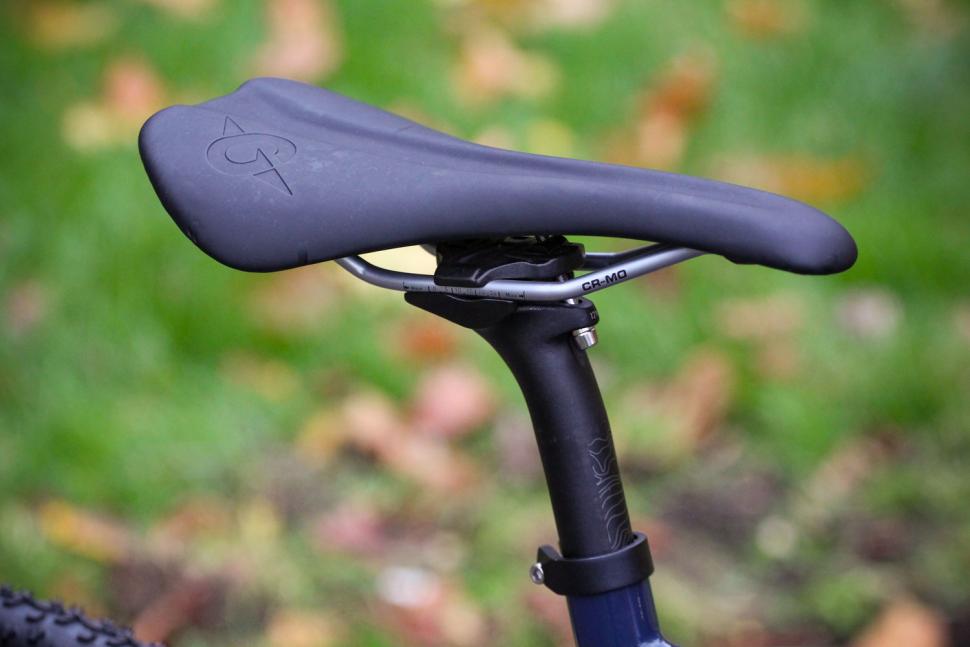


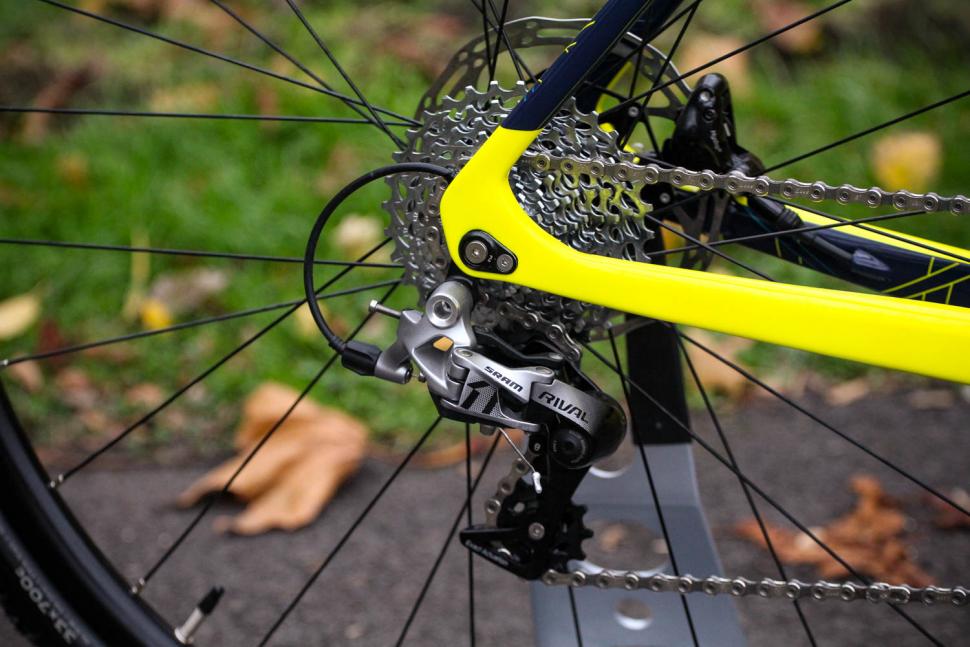
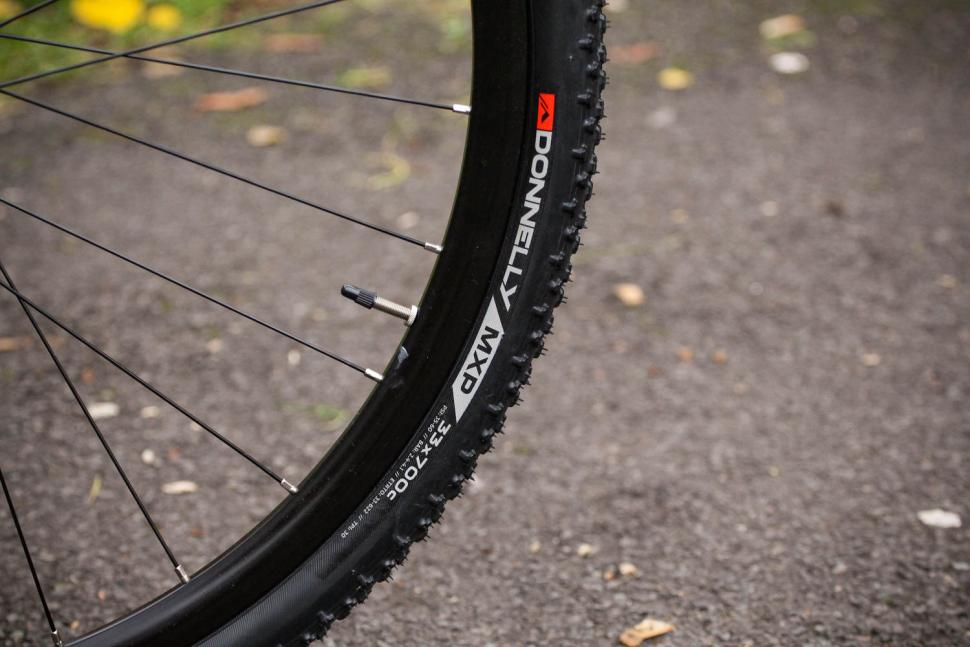
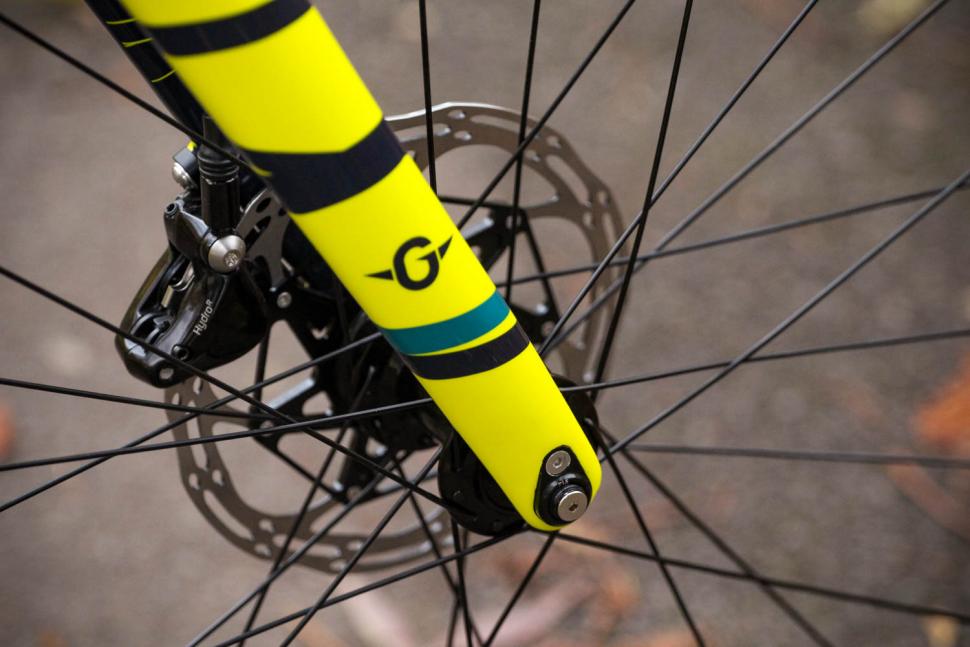
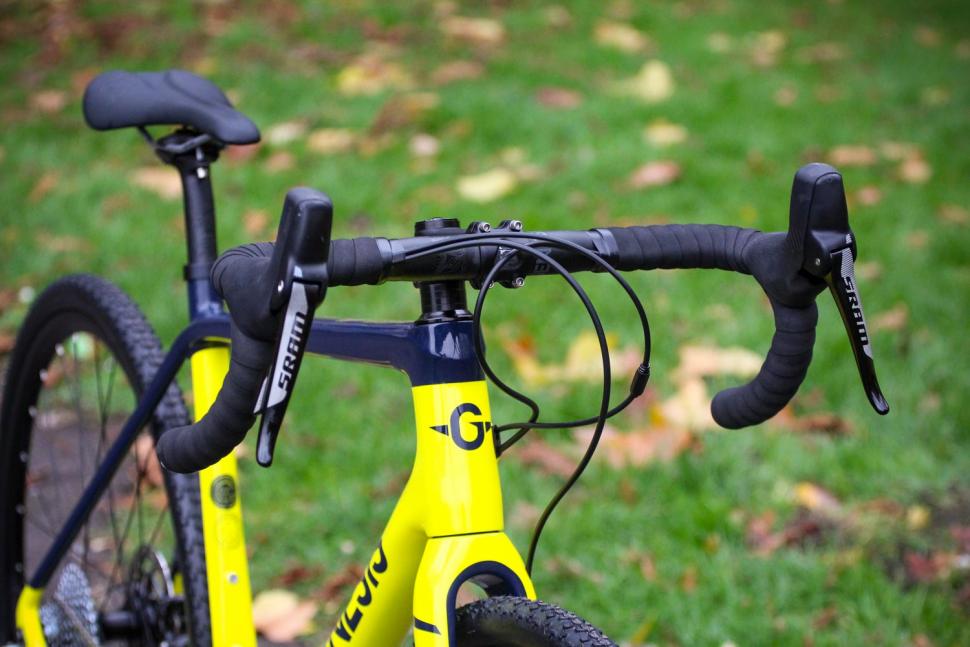
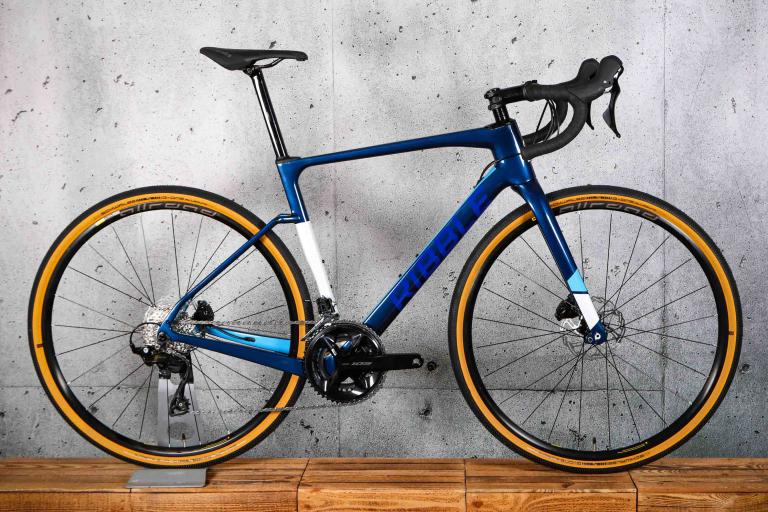
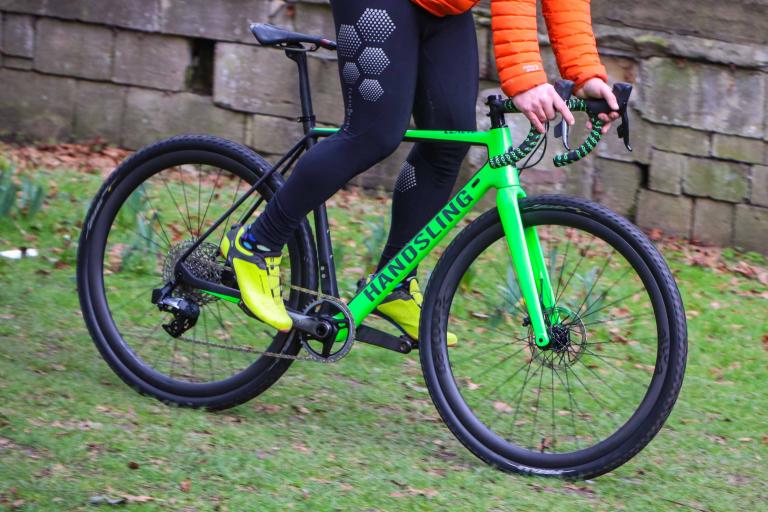
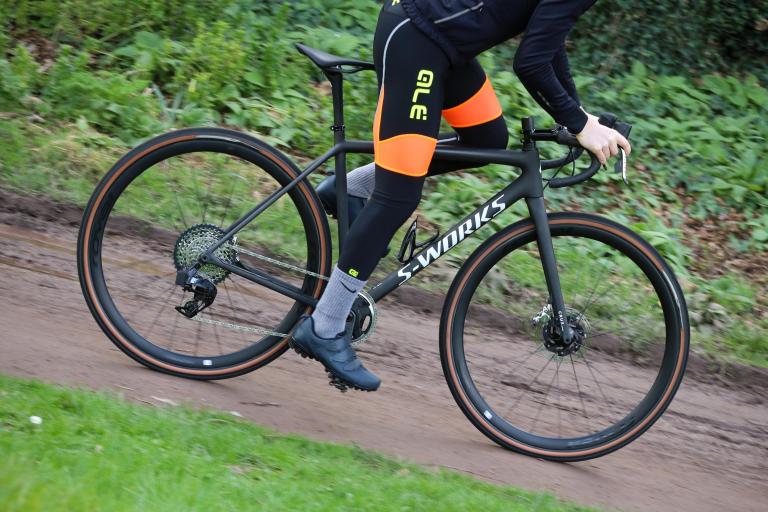
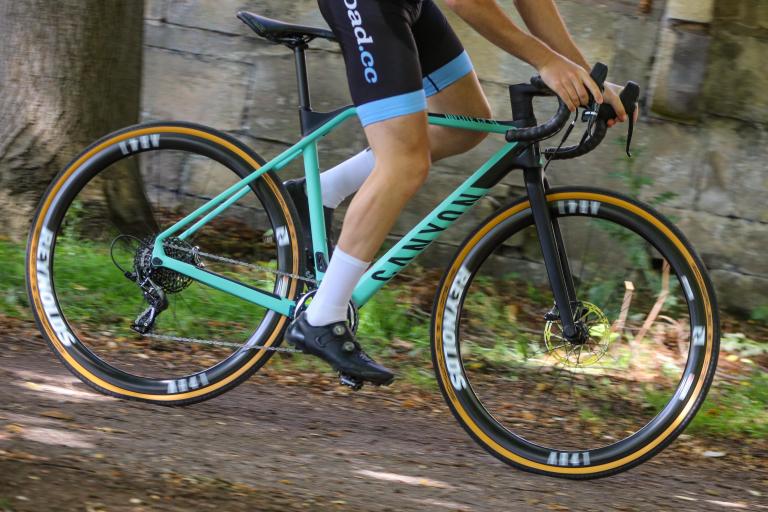
Add new comment
5 comments
"Donnelly isn't a brand of tyre I've used before but this 60tpi MXP...."
As a cyclo-cross racer I would be very surprised if you haven't used these tyres before - they're the new name for Clement. Donnelly has been the owner for a while now and has decided to put their name on the tyre instead of Clement.
Nope, not used Clement before either. As I've only ever focused on CX racing, I've mainly used tubulars from Dugast, Challenge and FMB. Only tubeless and clinchers that I've used have been on test so that's Schwalbe, Maxxis and Challenge.
“While the overall 8.7kg weight might seem a little on the heavy side, it's not the fault of the frameset. Most of that weight is found in the basic wheels” 4.4kg wheels? ; )
I've been racing one of these for the last two seasons after moving from a much more expensive X-Night SL and I have to agree the frame is excellent and much easier to live with than the Ridley (very stiff and short). It's a shame the wheelset lets this model down because it's a great bike.
I love Genesis bikes but they just don’t offer the value that they used to. I don’t know why you’d buy this over rivals.